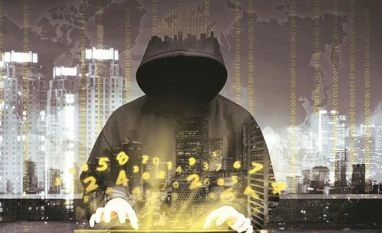Pavel Cherkashin, a Russian investor based in this city, thought he had the perfect name for a Catholic church that he is spending $11.5 million converting into a tech palace. It would be called Hack Temple.
But that was before the nearly daily deluge of news about Russian efforts to influence the 2016 presidential election by hacking computers and using Facebook and Twitter to spread inflammatory messages and sow division.
“We had so many concerns from our investors saying this would be inappropriate and we should change it,” said Cherkashin, 44, who planned to officially open Hack Temple this fall. “A bunch of Russian guys opening a hacker temple in the middle of San Francisco at a time when Russian hackers are considered the most evil in the world. They say you can’t.”
With news of the hacking and influence campaigns escalating all year, the Russian immigrant community of Silicon Valley, which numbers in the tens of thousands, is in a strange new position. Some Russian venture capitalists said start-ups were more wary about taking their funding, while several Russian-born engineers said they were being treated differently socially and in their companies. Lawyers also said some tech firms were installing tighter security measures restricting what data foreign-born coders can see.
At the same time, many said that as Russia gained a reputation for its hackers, interest in hiring its tech talent was increasing.
The tension is new. Russian immigrants helped build the last generation of Silicon Valley behemoths: The Google co-founder Sergey Brin and the early Facebook investor Yuri Milner are both Russian-born.
Now when Cherkashin, a partner at GVA Capital, which is investing $120 million in start-ups, pitches companies on why they should take investments from him, he gets skeptical questions as soon as they hear his accent, he said.
“It feels like if you’re a politician and you fell into a sex scandal, and everybody knows you for this, and every time someone recognises you they have this smile on their face, ‘So how’s your personal life doing?’ “ said Cherkashin, whose firm was incorporated in the United States.
“This is how I feel every time I meet with an investor and they hear my Russian accent,” he added. “They have this smile on their face.” Prospective partners and start-ups invariably ask the same question, Cherkashin said: Is his money clean?
“This question comes up two or three times a day,” he said. “I don’t think people would ask this question to a manager from another region.”
Julian Zegelman, an entrepreneur and a lawyer who represents and invests in Russian-speaking founders, said potential local tech partners worried they would accidentally get into business with the Russian government.
“They don’t want to be invested or dealing with companies whose technical talent is captive in Russia,” he said.
Zegelman said he had noticed that some cybersecurity firms, big tech companies, government customers and large venture capital firms were the most wary about working with new Russian immigrants. Yet some start-ups and small investment firms are more interested in Russian talent now.
“If you would have asked 10 years ago what Russia was known for, it would be Putin, the oligarchs and oil,” he said, referring to Russia’s president, Vladimir V Putin. “Now when you ask folks, ‘What do you think about Russia?’ you get things back like: ‘Oh, great cryptography.’ ‘Oh, it’s a lot of talented engineers.’”
Leonard Grayver, a lawyer specializing in start-ups who is on the board of the American Business Association of Russian-Speaking Professionals, said the hacking had put Russian tech talent at “the forefront.” His firm brokers technology deals between Russia and Silicon Valley, handling tech licensing and talent acquisitions, and he said the average size of a deal had risen to $4 million this year, from $1 million to $2 million last year.
And as companies staff up with Russian talent, he is getting a new question that he finds bizarre: “Are we letting the wolf in the henhouse? “ Some companies have asked him to help arrange for heightened internal security, he added.
“A lot of clients are trying to find ways to hire those Russian hackers and at the same time instituting heightened security protocols internally,” he said. “They’re isolating source code so you don’t have access to the main tree.”
©2017 The New York Times News Service
Unlock 30+ premium stories daily hand-picked by our editors, across devices on browser and app.
Pick your 5 favourite companies, get a daily email with all news updates on them.
Full access to our intuitive epaper - clip, save, share articles from any device; newspaper archives from 2006.
Preferential invites to Business Standard events.
Curated newsletters on markets, personal finance, policy & politics, start-ups, technology, and more.
)